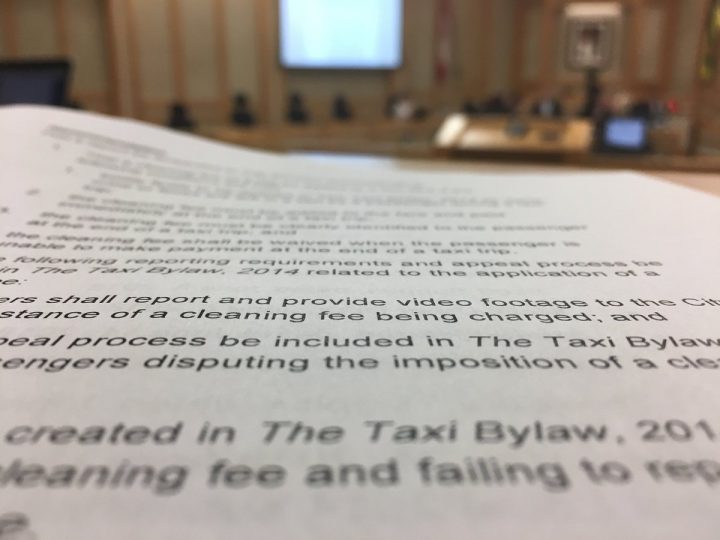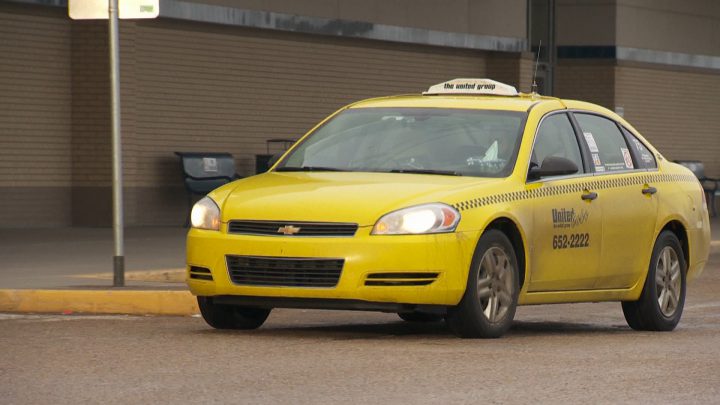The battle between taxi cabs and the introduction of ride-share services like Uber doesn’t appear to be getting any less contentious.

On Tuesday, 19 speakers addressed the City of Saskatoon’s committee on transportation over the course of two hours at city hall.
The majority of those in the audience were scores of Saskatoon cab drivers and those connected to the industry, who showed up and sounded off about Transportation Network Companies (TNC).
“The potential consequences to an uneven playing field are very real,” Carlo Triolo, general manager for United and Comfort Cabs, said.
“If the recommendations of this report are adopted make no mistake – taxis will be forced to limit their offerings in order to compete exactly the same.”
Detailed in the report was the city’s proposal to make the mandated minimum fare for ride-shares $3.10, just slightly higher than what it would cost a person to take public transit. The minimum fare for taxi cab companies in the city is $3.75.
“We’re concerned about the proposed .65 cent fare differential on every ride between a TNC and a taxi, not to mention the ability of TNCs to charge surge rates – how is that a level playing field?” Comfort Cabs owner Kelly Frie questioned.

Get daily National news
The questions for the committee didn’t stop there. The Canadian National Institute for the Blind (CNIB) brought up concerns about whether ride-share companies would allow service dogs.
An entire different issue that was raised was how thorough background checks are into a driver’s criminal history and that in-car cameras would not be a requirement for ride-shares.
“If a driver is robbed and beaten by a customer should it be of less importance if it occurred in a TNC or a taxi? Shouldn’t a woman entering a TNC have the same protection as one entering a taxi,” Shondra Boire, with the Saskatchewan Taxi Cab Association, said.
Among more than a dozen taxi supporters was Michael van Hemmen, general manager from Western Canada for Uber Canada.
He addressed all the security and safety misconceptions with the committee and stressed how the service fills a void in a province with historically high impaired driving rates.
“What we’ve seen is that when people have an affordable, reliable service like Uber, they make the smarter decision because they know they can depend upon that ride to take them home at the end of the night,” he added.
Unlike cabs, with Uber you know the total cost of your fare in advance of hopping in.
“If Uber wants to come here we have no problem with that, the problem starts when the city government or provincial government try to lower the standard just to accommodate TNCs or Uber,” local cab driver Mubarik Syed said.
Van Hemmen told the committee he wouldn’t have a problem with the base fare for cabs being lowered to $3.10 but would not endorse having Uber’s minimum fare raised since the company prides itself on being an inexpensive option to customers.
“Level and fair doesn’t mean exactly the same. If taxi wants to introduce ride sharing, go for it,” van Hemmen said.
“We look forward to competing on price, customer experience and customer service.”
This conversation is also not over, a special meeting was called by the committee for June 27. No speakers will be able to present but the discussion will continue at that point.









Comments